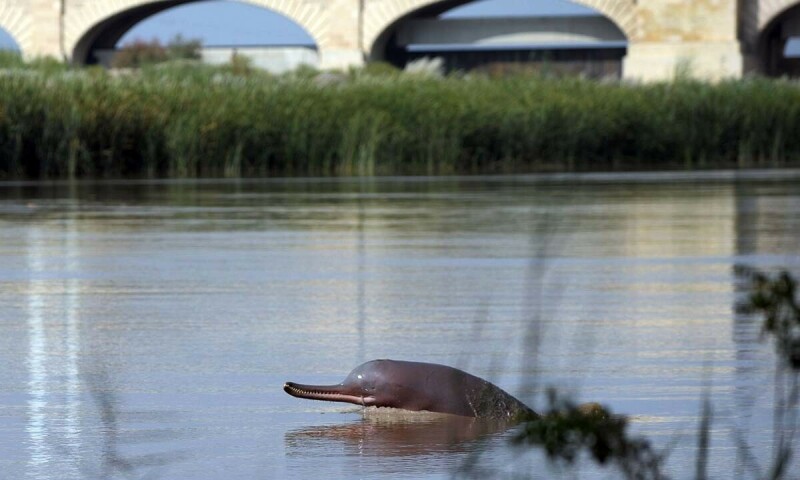PESHAWAR: The Khyber Pakhtunkhwa chief conservator wildlife has requested his counterparts in Punjab and Sindh to advocate with the climate change ministry for designating more area along the River Indus as the biosphere reserve and promote its trans-boundary management for the effective conservation of Indus blind dolphins and the associated habitat.
In a letter to the Punjab director general (wildlife and parks) and Sindh conservator (wildlife), KP chief conservator (wildlife-II) Dr Mohsin Farooque said that biosphere reserves were designated under the Unesco’s Man and Biosphere Programme (MAB) by the director general of UN entity in line with a decision of the MAB International Coordinating Council (MAB-ICC).
He said currently, 134 countries had 738 biosphere reserves, including four in Pakistan- one each in Punjab and Balochistan and two in KP.
UrgesPu njab, Sindh to advocate for declaring more area as Indus biosphere reserve
“In KP, two sites have been declared biosphere reserves by the Unesco MAB Programme, including Gallies biosphere reserve and Chitral Bashkar Garam Chashma biosphere reserve.
However, there are several sites that can be declared biosphere reserves, including Indus River and the associated riparian areas and wetlands along the Dera Ismail Khan district for Indus blind dolphin and associated biodiversity,“ he noted.
The chief conservator said the wildlife department conducted a feasibility study of that site for declaration as a biosphere reserve and submitted an application along with a dossier to the
MAB Committee through the climate change ministry in April 2023.
In the letter, he said as wildlife didn’t recognise manmade political boundaries and fulfilled their requirements and lifecycle within their home range irrespective of district, province and country limits, it was necessary to promote trans-boundary management for wildlife conservation to conserve species and associated biodiversity within the eco-system.
The official also said that the area of the proposed Indus blind dolphin biosphere reserve be extended to include the habitat falling in Punjab and Sindh provinces to cover the entire range of dolphin and conserve its habitat along the Indus River, including Layyah, Rajanpur, Dera Ghazi Khan and Muzzaffarghar in Punjab and Sukkur and other areas in Sindh.
“This [initiative] will help conserve the entire ecosystem along the River Indus, including associated riparian and wetland areas on both sides of the river,” it said, adding that the issue was also discussed in the seventh meeting of the National MAB Committee on May 30, 2023.
“It is requested to take necessary measures to take up the case with the ministry of climate change and environmental coordination for the declaration of the biosphere reserve along the Indus River in relevant districts of Punjab and Sindh and promote trans-boundary management for effective conservation of the Indus blind dolphin and the associated habitat,” he said.
When contacted, Dr Farooque said that the KP wildlife department had already sent its application for declaring the Indus biosphere reserve and would declare it so under Section 30 of the KP Wildlife and Biodiversity (Protection, Preservation, Conservation and Management) Act, 2015, after the MAB-ICC decision on the matter.
Section 30 of the Act reads, “When an area has a potential for promoting solutions to reconcile the conservation of biodiversity with its sustainable use, Government may, by notification in the official gazette, declare the area to be a Biosphere Reserve, comprising of a core zone, a buffer zone and multiple-use zone, and manage it in the prescribed manner.”
Published in Dawn, January 17th, 2025
- Desk Reporthttps://foresightmags.com/author/admin/September 25, 2024









